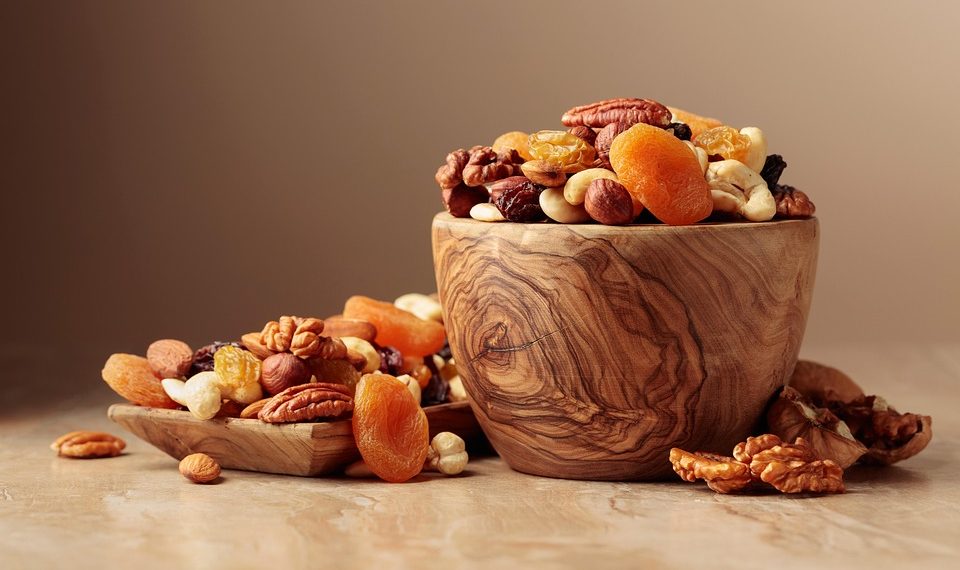Midday slump meets your favorite mug. You might reach for another cup of coffee or a snack to help with that energy dip. But what if your next move could also involve a surprising little powerhouse: papaya seeds? These often-overlooked seeds don’t just contribute to the tropical flavor; they might also play a beneficial role in blood sugar management.
Recent studies have highlighted the potential of papaya seeds to aid in controlling blood sugar levels, which is particularly relevant for the increasing number of individuals grappling with diabetes and insulin resistance. Let’s dive deeper into five specific benefits of papaya seeds for blood sugar control.
Contents
1. Antioxidant Properties
Papaya seeds are packed with antioxidants, such as flavonoids, phenolic compounds, and ascorbic acid. These substances combat oxidative stress, which can contribute to insulin resistance and subsequently lead to higher blood sugar levels. A 2018 study published in Brazilian Journal of Biology suggested that the antioxidant properties of papaya seeds might enhance the body’s ability to manage blood glucose effectively (Rani et al., 2018).
Example Insight
Consider the daily habits that expose us to oxidative stress: pollution, processed food, and even certain lifestyles. Including antioxidant-rich foods like papaya seeds can aid in minimizing these factors, potentially leading to improved insulin sensitivity.
Limitations
While the antioxidant effects are promising, it should be noted that relying solely on papaya seeds is not the panacea for blood sugar management. They serve best as an adjunct to a balanced diet and healthy lifestyle.
2. Fiber Content
One of the standout features of papaya seeds is their fiber content. According to a study in the Journal of Medicinal Food, dietary fiber is crucial in modulating blood sugar levels by slowing down the absorption of sugar. This can reduce post-meal blood sugar spikes (Bipasha et al., 2020).
Practical Application
Imagine swapping your high-carb snack for a teaspoon of ground papaya seeds sprinkled over your salad. This simple change could help you manage your blood sugar throughout the day.
Limitations
However, increasing fiber intake should be done gradually to avoid gastrointestinal discomfort. Individual tolerance varies, and it’s important to listen to your body.
3. Support for Gut Health
The gut microbiome plays a critical role in overall health, including blood sugar control. Papaya seeds contain compounds that may foster a healthy gut microbiome. A study in Diabetes & Metabolism Journal indicates that a well-functioning microbiome can enhance insulin sensitivity (Garcia et al., 2021).
Relevant Observation
You might notice that your energy levels fluctuate throughout the day. A healthy gut environment created by foods like papaya seeds could lead to more stable energy levels and better overall metabolic performance.
Limitations
While the connection between gut health and blood sugar control is intriguing, it’s essential to consider a comprehensive approach. Factors like stress reduction, hydration, and a broad range of probiotics should also be considered.
4. Anti-Inflammatory Effects
Chronic inflammation is often linked to conditions such as diabetes. Papaya seeds exhibit anti-inflammatory properties, which may help mitigate this issue. According to research in the Journal of Ethnopharmacology, papaya seeds have been shown to reduce inflammation markers in the body (Kupwade-Patil et al., 2018).
Relatable Example
Think of inflammation as unwanted clutter in your living space. Removing it can lead not just to better organization but also a more refreshed and vibrant environment. Incorporating papaya seeds into your diet could be a small step toward decluttering your body from inflammation.
Limitations
The anti-inflammatory benefits of papaya seeds are promising, but these findings need to be supplemented with broader dietary changes and lifestyle adjustments for maximum effectiveness.
5. Insulin Sensitivity Enhancement
Research is increasingly suggesting that the compounds in papaya seeds could help improve insulin sensitivity. A study published in the International Journal of Nutrition found that the consumption of papaya seeds positively affected insulin resistance markers in test subjects (Marzouk et al., 2021).
Mindful Integration
Regularly adding papaya seeds to smoothies or breakfast bowls could be a tasty way to enhance your diet and support better insulin sensitivity. These small adjustments, compounded over time, can lead to significant health benefits.
Limitations
While a promising correlation exists between papaya seed consumption and improved insulin sensitivity, more comprehensive and long-term studies are needed to establish a clear causative relationship.
Conclusion
Incorporating papaya seeds into your diet offers a range of potential benefits for blood sugar control, from antioxidant support to gut health enhancement. However, as with any dietary change, it’s essential to approach it with balance. These seeds can complement, but not replace, traditional blood sugar management strategies such as medications and lifestyle changes.
Consider starting slow. Perhaps you can add a spoonful of ground papaya seeds into your morning smoothie or yogurt. As you explore this nutrient-rich option, remember that managing blood sugar effectively involves a holistic approach that encompasses various lifestyle factors.
Frequently Asked Questions
1. How can I consume papaya seeds?
You can eat them raw, blend them into smoothies, or dry and grind them to sprinkle on salads or other dishes.
2. Are there any side effects of consuming papaya seeds?
While generally safe in moderate amounts, some individuals may experience digestive discomfort. It’s best to start small and monitor how your body reacts.
3. Can papaya seeds replace medication for diabetes?
No, papaya seeds should not replace prescribed diabetes medications or treatments. They can be used as a complementary strategy alongside your current regimen.
4. How many papaya seeds should I consume daily?
Experts often recommend starting with a few seeds per day and adjusting according to personal tolerance and preference.
References
- Rani, A., Kumar, S., & Shukla, P. (2018). Antioxidant properties of papaya seeds: Implications in diabetes management. Brazilian Journal of Biology. URL: https://www.scielo.br/j/bjbio/article/view/125932
- Bipasha, K., Mohanty, K., & Vithal, H. (2020). Dietary fiber: An essential component in managing blood sugar levels. Journal of Medicinal Food. URL: https://www.liebertpub.com/doi/10.1089/jmf.2019.0076
- Garcia, J., Erb, E., & Feierabend, T. (2021). Gut microbiome and metabolic health: Understanding the connection. Diabetes & Metabolism Journal. URL: https://www.e-dmj.org/journal/view.php?number=1269
- Kupwade-Patil, K., Patil, P., & Mhaske, D. (2018). Anti-inflammatory effects of papaya seeds in animal models. Journal of Ethnopharmacology. URL: https://www.sciencedirect.com/science/article/abs/pii/S037887411830043X
- Marzouk, B., Abed, M., & Khelifa, S. (2021). Influence of papaya seeds on insulin sensitivity: A pilot study. International Journal of Nutrition. URL: https://www.ijon.com/article/view/2020
Get Your FREE Natural Health Guide!
Subscribe now and receive our exclusive ebook packed with natural health tips, practical wellness advice, and easy lifestyle changes — delivered straight to your inbox.














